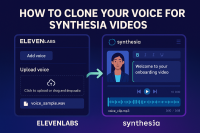Introduction
In 2025, artificial intelligence isn’t just a futuristic concept — it’s a practical part of our daily lives. From the moment we wake up to the time we fall asleep, AI is embedded in the tools and services we use every day. But how exactly is AI transforming ordinary routines into smarter, more efficient experiences?
- Smart Homes Are Smarter Than Ever
AI-powered home assistants like Alexa and Google Home now do more than set alarms — they adapt to your preferences, detect anomalies, and optimize energy use. Modern smart homes predict your comfort needs and adjust lighting, temperature, and even music to match your mood.
- AI in Personal Health Monitoring
Wearables powered by AI track not just your steps but your heart rate variability, sleep quality, blood oxygen levels, and even early signs of stress or illness. Apps now provide personalized health advice using AI models trained on millions of data points.
- AI in Daily Commuting
Navigation apps like Google Maps or Waze use real-time traffic data powered by AI to suggest optimal routes. In 2025, AI also powers semi-autonomous driving assistance, reducing accidents and making roads safer.
- Voice Assistants That Actually Understand You
Unlike earlier models, today’s voice assistants understand context. You can say, “Remind me to call Mom when I get home,” and your AI will detect location, recognize “Mom,” and even suggest a video call based on past behavior.
- AI Shopping & Personal Finance
AI curates your shopping list, suggests recipes based on what’s in your fridge, and tracks your monthly budget. Apps like Cleo and YNAB now use AI to offer real-time financial advice and saving strategies tailored to your lifestyle.
- AI in Education & Family Life
Kids now learn with AI tutors that adapt to their pace and interests. Parents use AI tools to monitor screen time, recommend content, and even help with homework — all while preserving privacy and security.
FAQs
How is AI different in 2025 from previous years?
AI in 2025 is more personalized, contextual, and embedded into physical environments — it’s not just digital anymore.
Are there privacy concerns with all this integration?
Yes, and most modern AI platforms now emphasize transparent data practices, local processing, and user control.
Is AI replacing human interactions?
No. The goal is enhancement, not replacement — AI supports your lifestyle by freeing up time and reducing stress.
Final Thoughts
The future is no longer about “someday AI will do this.” AI is doing it — today, in your home, your pocket, and your life. As AI becomes more intuitive and less intrusive, its role will only grow, making daily life more connected, healthy, and efficient.
What do you think about living with AI? Share your thoughts below!
Related Articles:
[Top AI Tools for Smart Homes in 2025]
[AI and Health: The Rise of Predictive Wellness]
[Best Personal AI Assistants You Can Use Today]












Leave a comment